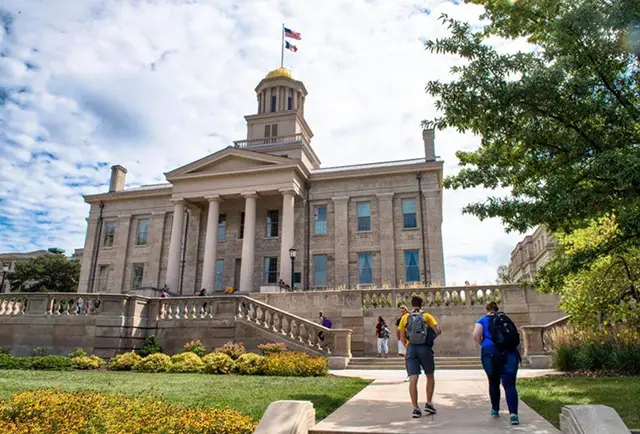
DAVENPORT, Iowa – InterVarsity Christian Fellowship USA has gained a legal victory in its effort to remain an official student organization at the University of Iowa.
Federal Judge Stephanie Rose ruled Sept. 27 the university violated the evangelical campus ministry’s speech, association and free exercise of religion rights by barring InterVarsity for requiring its leaders to be Christians. In her 52-page opinion, Rose also said three university administrators would personally have to pay damages to InterVarsity that would be set at a later trial.
“We must have leaders who share our faith,” said Greg Jao, InterVarsity’s director of external relations, in a written statement. “No group – religious or secular – could survive with leaders who reject its values. We’re grateful the court has stopped the University’s religious discrimination, and we look forward to continuing our ministry on campus for years to come.”
InterVarsity – which has chapters on more than 770 campuses in the U.S. – has been at the University of Iowa for about 25 years but was notified in June 2018 that its constitution violated the school’s Human Rights Policy by mandating its leaders be Christians. Shortly thereafter, the school removed the ministry as a registered student organization (RSO).
The university derecognized 38 other student groups – including other Christian ministries, the Sikh Awareness Club, the Imam Mahdi Organization and the Latter-day Saint Student Association – at about the same time it eliminated InterVarsity as an RSO, according to Becket, the religious liberty organization representing InterVarsity.
Meanwhile, the school continued to recognize fraternities, sororities, other groups and even some religious organizations that require their leaders to be part of a class protected under the school’s Human Rights Policy, Rose said in her decision.
The University of Iowa “does not appear to interpret the Human Rights Policy uniformly as to all religious groups,” she wrote. “Notably, Love Works is a Christian group that requires its leaders to agree with the group’s core beliefs, which include affirming those” in the LGBT community.
“This disparate treatment constitutes viewpoint discrimination against InterVarsity,” Rose said in her opinion. “These examples show that, by granting the exceptions it has to the Human Rights Policy and refusing to make a similar exception for InterVarsity, the University has made a value judgment that its secular reasons for deviating from the Human Rights Policy are more important than InterVarsity’s religious reasons for the deviation it seeks.”
In 2018, Rose issued a similar ruling in favor of Business Leaders in Christ, another campus ministry derecognized by the school. In the InterVarsity decision, she expressed astonishment the university continued its unequal treatment of campus groups.
She “would never have expected the University to respond to that order by homing in on religious groups’ compliance with the policy while at the same time carving out explicit exemptions for other groups. But here we are,” Rose wrote.
Becket Senior Counsel Daniel Blomberg said in a written release, “It’s too bad it took twice for the University to learn its lesson. There was no excuse the first time for squashing students’ First Amendment rights. University officials nationwide should now take note that religious discrimination will hit them in the pocketbook.”
Iowa is not the first university to derecognize InterVarsity. Schools such as Vanderbilt University and California State University also have removed the ministry from official recognition on their campuses.
InterVarsity’s membership is open to all who would like to participate, but it requires its leaders to agree to its statement of Christian faith.
Written by Baptist Press, the official news service of the Southern Baptist Convention.

